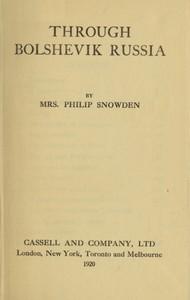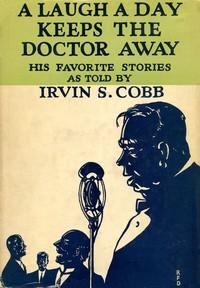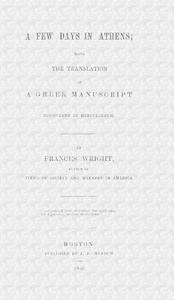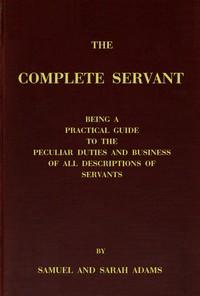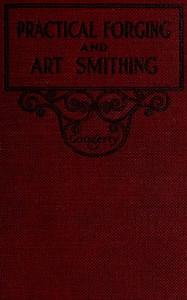|
|
Read this ebook for free! No credit card needed, absolutely nothing to pay.Words: 28890 in 7 pages
This is an ebook sharing website. You can read the uploaded ebooks for free here. No credit cards needed, nothing to pay. If you want to own a digital copy of the ebook, or want to read offline with your favorite ebook-reader, then you can choose to buy and download the ebook. ur, nor a pose unstudied. The lighting effects were astonishing. Here, a moon gave a moon's light, and a daybreak came as gently and softly as in Nature, and not with the suddenness of breaking china. In Petrograd we saw two performances, one Gluck's "Orpheus" and the other Bizet's "Carmen." In addition we had an hour at the ballet on our way to the railway train and Moscow. The ballet is known in London for the exquisite thing it is. A special interest for us in Petrograd was the inclusion in the caste of gifted proletarian children, whose dancing did nothing to lower the standard in these things to which Russia has accustomed the rest of Europe for so long. It was a very lovely rendering of the dream of a hopeless lover of his princess-bride, who dies of grief and shock when the vision fades and he is left with nothing but her veil of gauze. Of "Carmen" I have seen a better performance from the point of view of chorus singing and orchestral accompaniment. There was a disturbing failure to keep together of chorus and orchestra which marred an otherwise wonderful presentation of this well-known and favourite opera. But again, the way in which it was staged was marvellous beyond all words. And similarly with "Orpheus." This wonderful work, rendered with exquisite art, developed in one a mood of exaltation, and left one with the feeling that here in the world of mystery and imagination, of passionate and pure aspiration are the things which matter most, and that the sordid battles of political theorists for intellectual victories and argumentative triumphs are of very secondary importance. One or two of the Delegates went to the green room between the scenes to discover how far the new order of Society was satisfying to the artists. One of the chief of these was asked if he experienced as much sympathy and appreciation from the new type of audience as the old, and whether he liked singing to the new as well as to the old. He replied that to him the social position of the members of his audience did not matter; that the mere appendages of the old-time theatre, the dresses, the fans, the flowers and other fripperies meant nothing at all; that understanding and sympathy were everything to the singer, and that in these things, there was no difference between the old and the new. The audiences were certainly very attentive and most appreciative. They were composed in the main of quiet working folk and professional men and women. There were very few good clothes, but everybody was neat and tidy except about the feet. The only thing I noticed which seemed to indicate that many in the audience were new to the music was the applause when the curtain descended and before the orchestra finished. The "clappers" were reproved by the more instructed part of the audience, and will probably learn in time to respect the music till the end. And anyhow, I have seen in London theatres exhibitions of bad manners from people who fussed with their hats and cloaks during the last moments of the play or concert, infinitely harder to endure than the premature enthusiasm of the new opera-goers in Petrograd. Certain nights at the Opera and theatre are reserved for soldiers and sailors, certain others for Trade Unionists and other workers, and the remainder are for the general public. The public pay for their places, the workers go in free. The tickets are distributed to them in turn through their organisations. So great is the demand for tickets that many people are able to sell theirs at double the price, which they frequently do, preferring the extra money to the music; whilst cunning speculators buy up quantities of tickets and make a profitable deal with them. But the outstanding fact remains: That Opera and the best music and plays are accessible to all, free to most, and that Art is tenderly nurtured under the Soviet administration. Artists are able to command big salaries in roubles, which, however, are not really big salaries when compared with those offered by foreign syndicates. Chaliapine, we were told by a Commissar, is able to earn two hundred thousand roubles in one night. But when it is borne in mind that ten thousand roubles can be bought for an English pound and that ?20 is the nightly sum commanded by one of the greatest singers who ever lived, it is not so outrageous a reward as the little Commissar appeared to think. It is, of course, very large when compared with the two thousand to eight thousand roubles which is the salary scale per month of the Trade Unions of Russia. Sometimes the artists are paid in kind. The men and women who sang and danced for our entertainment at the dinner in Petrograd were paid in white flour, a much valued commodity; and were paid well. During the big interval in the first opera in Moscow, a performance of "Prince Igor," an interesting thing happened: Trotsky came into the anteroom to see the Delegates. We all crowded round him eager to have the latest news from the Polish front from which he had just come and to which he was immediately returning. He had to tell of great victories over the Poles, and spoke with magnificent confidence of overwhelming success to the Red armies. Trotsky made his name and fame in Europe as the greatest of pacifists and anti-militarists; but not in the garb of St. Francis did he enter our midst! Physically he is a remarkably fine-looking man; a Jew, dark and keen, with penetrating eyes, and a quiet manner suggestive of enormous reserves of strength. He was in an officer's uniform, which fitted him extremely well. When one of the Delegates was presented to him as a conscientious objector who had served a term in prison for his faith, he turned quickly and said, though not unkindly: "We can have nobody here who preaches peace and wants to stop the war." The bell rang, and with Trotsky in our midst we re-entered the box, the late Czar's place in the vast theatre. Trotsky took his place in the middle of the front row. I occupied the seat next to him on his right, and so was in a position to see everything that happened. As soon as the great audience caught a glimpse of Trotsky it rose like one man, and with wild enthusiasm applauded its hero again and again. Naturally we rose with the rest to pay our respects to the man who was leading in his country's battles and winning all the time. The cheers doubled and trebled. People shouted themselves hoarse. It was the most spontaneous thing I have ever seen. It was wonderful! And then a great burly sailor in the first gallery sprang to the front and led both orchestra and audience in the singing of "The International?." It was the one great occasion on which we joined in the singing of this overworked ditty with real and undiluted pleasure. This was because it was a natural bursting into song of a great gathering standing to welcome its conquering hero. It was a fine occasion. Free books android app tbrJar TBR JAR Read Free books online gutenberg More posts by @FreeBooks
: A laugh a day keeps the doctor away by Cobb Irvin S Irvin Shrewsbury - American wit and humor; Anecdotes@FreeBooksThu 08 Jun, 2023

: A few days in Athens being the translation of a Greek manuscript discovered in Herculaneum by Wright Frances - Biographical fiction; Philosophers Fiction; Athens (Greece) Fiction; Epicurus 341 B.C.-270 B.C. Fiction; Greece History To 146 B.C. Fiction@FreeBooksThu 08 Jun, 2023
|
Terms of Use Stock Market News! © gutenberg.org.in2025 All Rights reserved.

